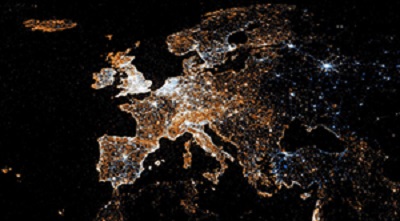 The UK’s decision to leave the European Union is an undeniable wake-up call for European politics. Its roots and drivers are diverse and its impacts will be manifold, but likely negative. We already know that about 70% of the UK’s environmental safeguards and legislation are now at risk.
The UK’s decision to leave the European Union is an undeniable wake-up call for European politics. Its roots and drivers are diverse and its impacts will be manifold, but likely negative. We already know that about 70% of the UK’s environmental safeguards and legislation are now at risk.
But one thing is clear: the political problems faced in the UK are not restricted to that country. With increasing Euroscepticism, xenophobia and nationalistic voices across Europe we urgently need a new political discourse based on cooperation and solidarity, where people and the planet are central to EU policies and decision-making. We need a new vision for Europe.
The UK is not alone in facing the challenges that arise from an increasingly globalised world, where inequality is bad and getting worse. In the 1980s, the richest 10% of the population in OECD countries earned seven times more than the poorest 10%. They now earn nearly ten times more.
Coupled with the impacts of climate change and biodiversity meltdown, mass youth unemployment and a humanitarian disaster with thousands dying at our borders, it’s clear that there is an urgent need for a common political vision based not on the neoliberal status quo, but instead on social and environmental justice.
Instead of rising to this challenge, European decision-makers have ploughed ahead with counter-productive ‘cures’ – austerity and de-regulation. They are cutting public and environmental safeguards and giving more leeway to powerful corporate interests. The EU-US trade negotiations (TTIP) are the perfect example: catering for business lobby groups while putting the public interest at risk.
It’s no surprise that people are rebelling against the politics of the elite.
But this rebellion is too often dangerously off-target. In times of insecurity and societal atrophy, lashing out at a scapegoat – whether that’s a migrant or a complex political institution – is an easy distraction. It’s also a damaging response that impacts the most vulnerable in society, and bolsters the extreme positions pushed by the political parties on the far-right.
Europe and the EU institutions in particular stand at a cross-roads. Sticking with the same tried and failed neoliberal medicine will result in even bigger inequality and environmental degradation. The alternative is to let the Brexit alarm bell rouse us, and take the road based on people-centred politics that also puts the environment and social justice at its core.
This means creating a positive vision of global solidarity in Europe, where people are engaged towards building a society that adheres to its ecological limits and ensures that standards of fairness and equity are applied, while keeping vested corporate interests at bay.
However, Rome wasn’t built in a day, and neither will a better Europe. The Schuman declaration of 1950, which set up the foundations of what is now the European Union, acknowledged this: "Europe will not be made all at once, or according to a single plan. It will be built through concrete achievements which first create a de facto solidarity."
The first steps we can take are restoring genuine solidarity, and each and one of us contributing to building a better Europe that benefits both people and the planet.
This article was originally published by openDemocracy.
Rate and Review
Rate this article
Review this article
Log into OpenLearn to leave reviews and join in the conversation.
Article reviews